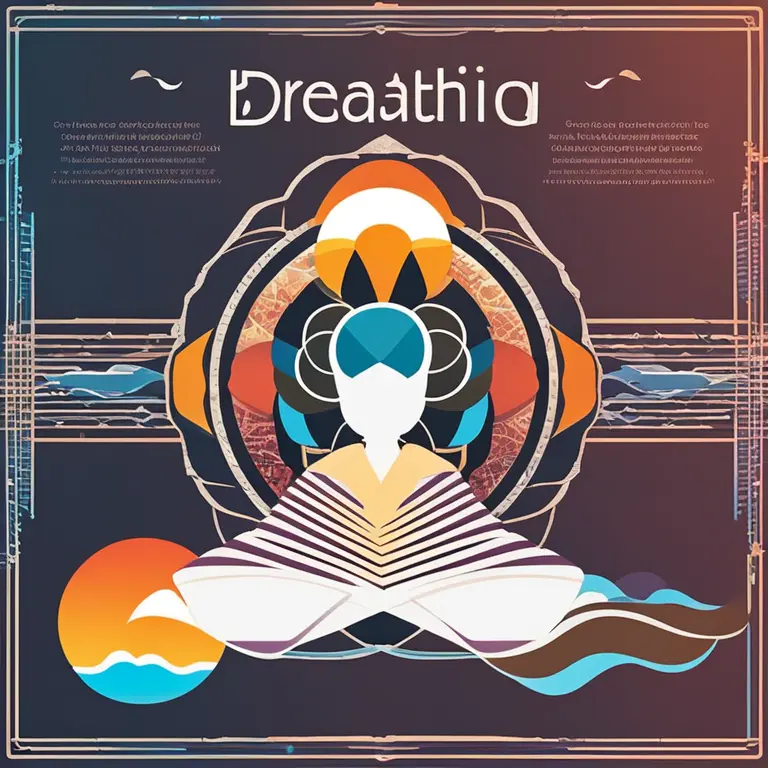
Meditation Secrets for Enhanced Mental Well-being
Discover simple yet powerful meditation techniques designed to promote mental health in our modern, fast-paced world.
article by Hina Kurosawa
Meditation: A Gateway to Peace
Meditation has long been heralded as a practice steeped in tradition, often associated with monks and spiritual guides. However, its relevance has surged in contemporary times as a tool for mental health. Merely a decade ago, meditation was a fringe activity, but now it's firmly planted in the mainstream as an effective mental health aid. Research has shown that consistent meditation practice can help reduce stress, anxiety, and depression—problems that have intensified in our digital age. By turning our attention inward, we cultivate an environment of calm that awaits us amidst life's chaos.

Types of Meditation for Your Mind
There are several types of meditation, each offering different paths to mental clarity and resilience. Mindfulness meditation teaches us to be present and aware of our thoughts without judgment. Transcendental Meditation uses mantras to help the mind transcend to a state of deep relaxation. Guided imagery is a visualization technique that uses mental pictures to transport to a peaceful state. Lastly, Loving-kindness meditation encourages unconditional love towards oneself and others, fostering positive emotions.

Starting a Meditation Practice
Beginning a meditation practice can be as straightforward as allocating a few minutes each day to peace and quiet. Find a comfortable space where you can sit without interruptions. You might choose to meditate first thing in the morning to set a positive tone for your day or in the evening to decompress. It's essential to start with manageable goals, like five minutes each session, eventually working your way up as your focus strengthens. The key is consistency rather than duration.

The Role of Breathing
Proper breathing is a cornerstone of effective meditation. It anchors your focus and regulates your body's rhythm. Deep, diaphragmatic breaths activate the parasympathetic nervous system, which induces a state of relaxation. It's not merely about taking slower breaths; it's about mindful breathing. Observing the flow of air in and out of your nostrils, the rising and falling of your belly, can be a meditation in itself—a calming ritual that tells your body it's time to slow down.

Integrating Meditation with Technology
In our tech-driven era, meditation has been enhanced with digital tools to cater to the modern user. Mindfulness apps have become particularly prevalent, offering guided sessions, progress tracking, and personalized programs. Additionally, wearable devices now monitor physiological responses during meditation, providing feedback that can help fine-tune one's practice. It's an exciting time where age-old practices meet cutting-edge technology, creating an accessible path to mental health.
Meditation's Place in Mental Health Therapy
Meditation has gained acceptance in the field of psychology and is now often incorporated into therapies for mental health. Cognitive-Behavioral Therapy (CBT), for example, sometimes includes mindfulness techniques to help patients observe and alter thought patterns that lead to distress. Mindfulness-Based Stress Reduction (MBSR) programs are widely recommended by therapists to enhance emotional regulation and reduce symptoms of various mental health conditions.
Published: 2/12/2024
Modified: 2/12/2024
More predictions
Come back here soon to learn more about yourself and your future


Meditation: From Turmoil To Tranquility
James lived in the heart of the bustling city, surrounded by skyscrapers that seemed to touch the heavens and streets that never slept. Every morning, as the city roared to life, so did the storm inside James. A whirlwind of thoughts, worries, and fears that left him feeling trapped in his own mind. Deadlines, bills, relationship woes - the list seemed endless, and the weight of the world pressed heavily on his shoulders.


The Harmonic Resonance of Meditation Music
Delve into the serene world of meditation music and discover how it amplifies your spiritual and astrological practices, guiding you toward inner peace and cosmic synchronicity.


Meditation Explored: 10 Cutting-Edge Discoveries
Meditation, an age-old practice, has been undergoing a modern renaissance, with science diving deep into its mysteries. As researchers explore its intricacies, they continue to unveil fascinating facts that bridge ancient wisdom with contemporary discoveries.